
Math is a universal experience. Math is everywhere and for everyone, which is the exact energy we’re bringing with us into the new school year as ST Math® users and ST Math champions head back to the classroom.
 As you know, MIND Research Institute believes deeply in making math equitable and accessible for everyone. In fact, our mission is to ensure that all students are mathematically equipped to solve the world's most challenging problems.
As you know, MIND Research Institute believes deeply in making math equitable and accessible for everyone. In fact, our mission is to ensure that all students are mathematically equipped to solve the world's most challenging problems.
Everything we do at MIND is grounded in research and neuroscience about how the brain learns, which offers great insight into how people build an understanding of the world around them, from infancy all the way through adulthood.
Administrators, teachers, and students aren’t the only ones excited for going back to school. Our MIND leadership team and thought leaders are excited for the possibilities that this new school year holds.
From the heart of MIND, here are thoughts and feelings from our MIND leadership team to inspire and invigorate everyone heading back to school.

Andrew Coulson, Chief Data Science Officer, expressed gratitude for the perseverance that students will demonstrate this year, including almost 1.3 million students using ST Math.
“I'd like to say thanks in advance for the massive, stupendous amount of precious youngster thinking energy that is going to be invested by learners this year in the face of non-routine puzzling challenges and lots of (productive) struggle.”
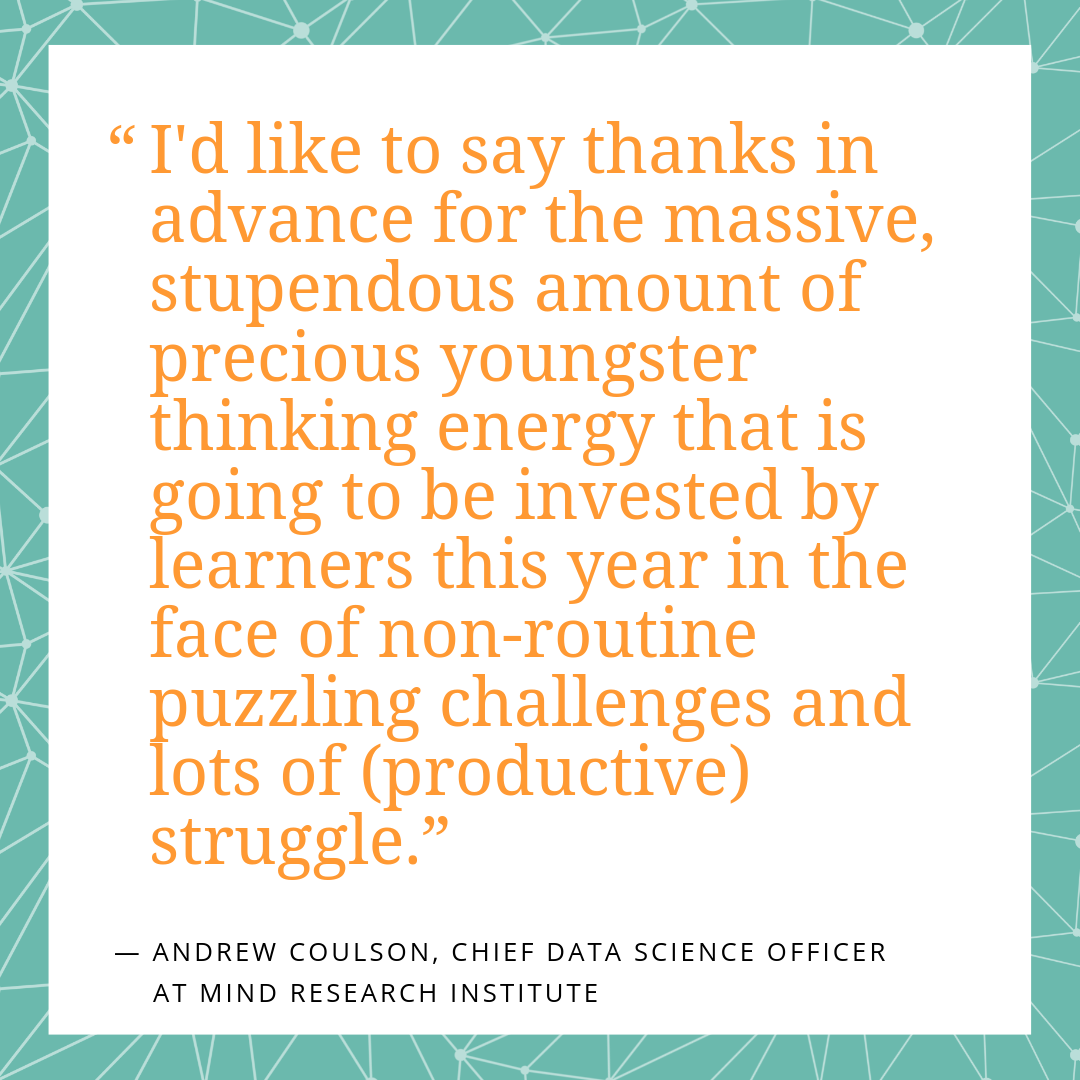
Brandon Smith, Product Director and Lead Mathematician at MIND Research Institute, voiced his excitement over the possibilities this school year. “When students face tantalizingly tricky challenges and are given the freedom to be the source of their own actions, they stay engaged longer and think more deeply. When we let students act and interact before they’ve been given the step-by-step recipe we inspire deeper mathematical thinking.”
“When looking at your use of classroom math time, consider how many mathematical decisions your students are making and what kind of feedback they receive. The more decisions and more immediate and informative the feedback—the more learning happens. Let’s make this a great year for learning by doing!”
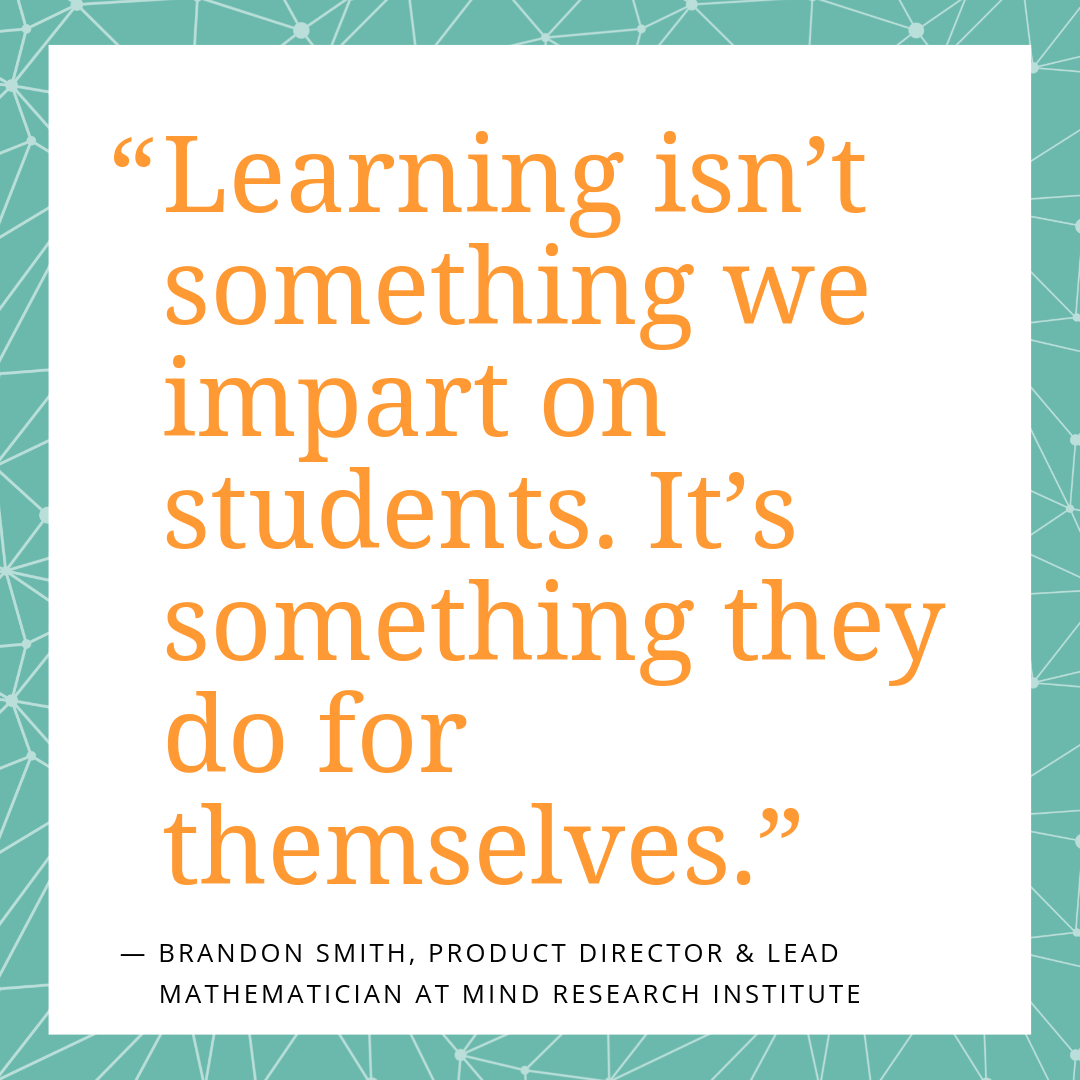
Matthew Peterson, Ph.D., Co-Founder and Chief Research and Development Officer at MIND expressed his appreciation for the process of learning. “I often meet students who are afraid of making mistakes because they don’t realize that mistakes are where the learning happens. Mistakes due to challenge is where the fun starts.”
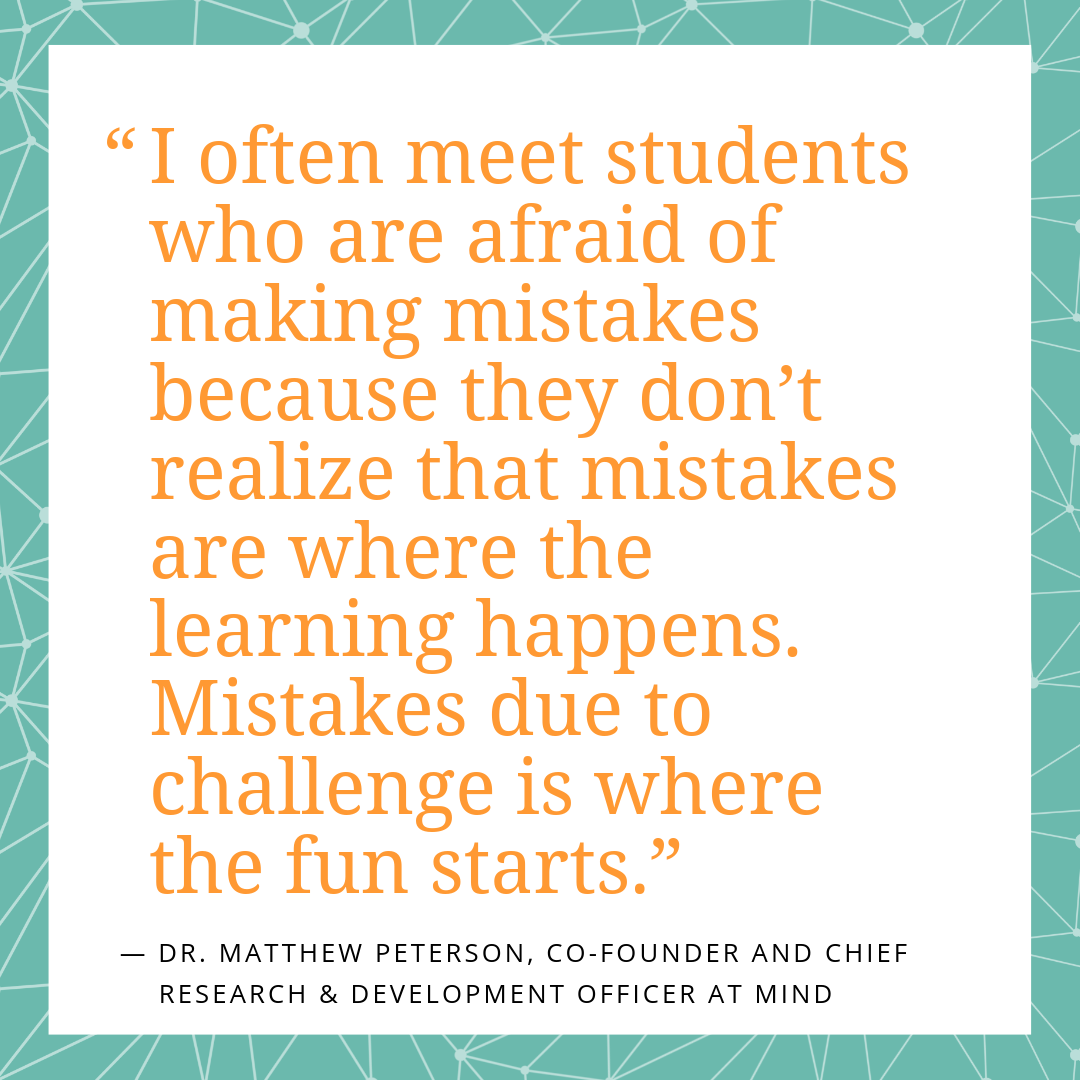
Liz Neiman, Vice President of Engagement, voiced her enthusiasm for mathematics as a critical foundation. “A plant needs both sunlight and water to grow and thrive. But when you think about literacy and math in education, so often reading is a focus while students, educators, and parents believe that you’re either a math person or you aren’t. We believe that math is from everywhere, in everything, and for everyone, and that anyone can be a math person when they don’t just learn math, but experience it.”

Karin Wu, Executive Vice President and Executive Director of Social Impact issued a challenge to students, teachers, and anyone in a growth mindset. “Look around you. I dare you to find something that you’re using, touching, wearing, hearing or seeing that wasn’t designed or made with math. Math is why we’re not still living in caves! It’s the true superpower humans possess. So learn it. Use it. Make beautiful things and solve big problems! Make the world a better place with math!”

Kevin Hammer, Vice President of Engineering and IT, shared his passion for MIND's mission. “I love my job because we are working towards a bright future. As a software engineer working at MIND, I’m energized by the amount of opportunity there is to change the how people feel about math. The team at MIND sees a future where everyone is a math person."

Since math is universal, we all have our own, unique experiences with it.
Brett Woudenberg, Chief Executive Officer here at MIND, shared his personal thoughts on math. “Math has been a companion that helps me find order in chaos, and calm confidence in uncertainty. It's a creative art that lets me explore the possibilities and discover new ways of thinking that enrich all aspects of my life. Unlike many things, it is available to us all, and brings true equity and opportunity to each of us to achieve our best. Being part of a team whose sole mission is to help every student discover their math ability is truly gratifying!”
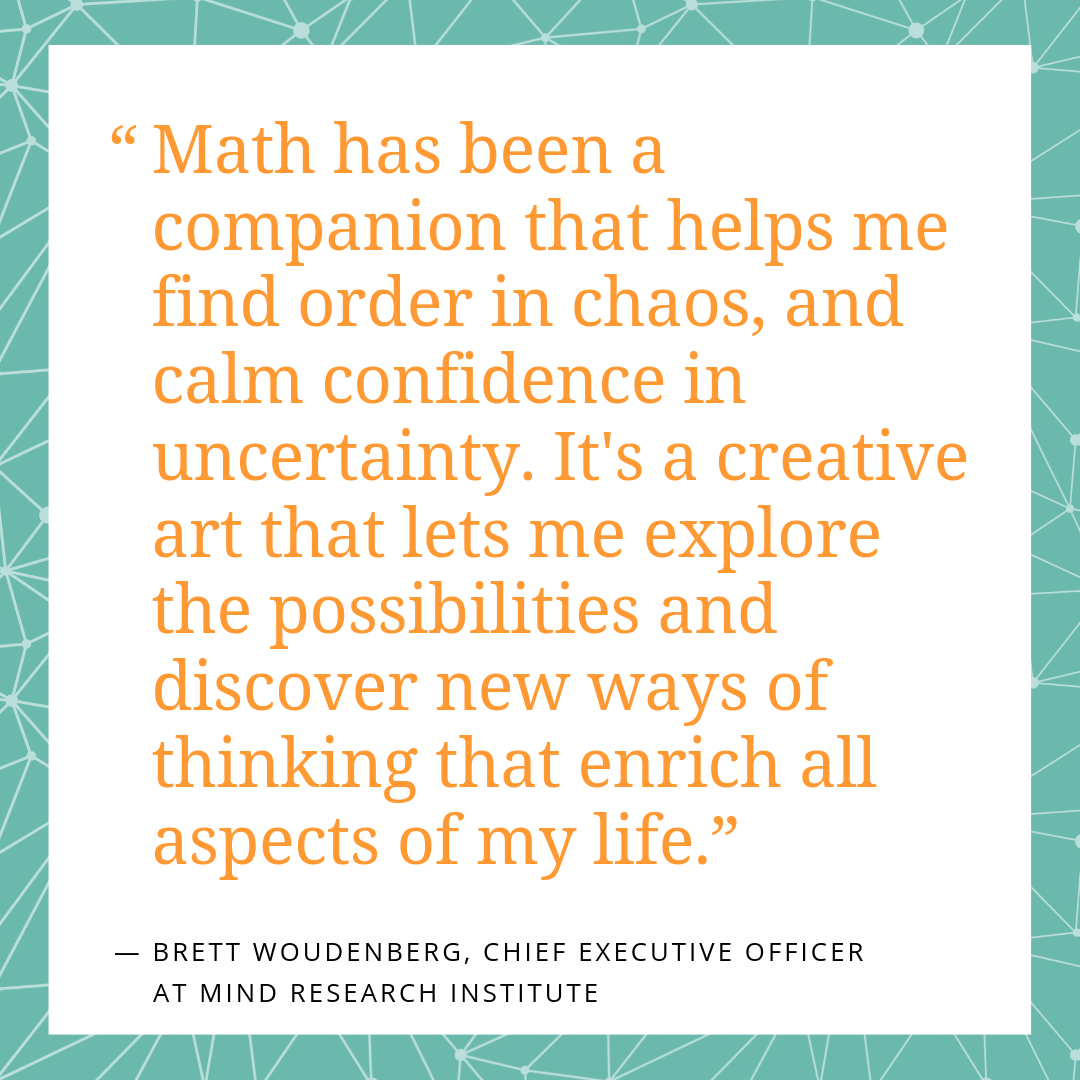
Learning is one of our main core values at MIND Research Institute. But learning is more than that—more than a word on a piece of paper. It's part of our culture.
Dorene Uhrich, Vice President of Education Success, shared an experience from her day. “I recently had someone apologetically explain that he was still learning—I told him when I stop learning is when I'm going to start apologizing!"
She continued, “I cannot remember a day at work where I didn't learn something new or more deeply. I am sincerely grateful for the opportunity to keep learning!"

Learning is also an integral part of ST Math. Through ongoing research, we continue to investigate key questions about learning, mathematics, and how the brain works. In fact, we work to create unique and effective learning environments for students and teachers, both inside and outside of the classroom.
Jo Garrett, Chief Financial Officer, embraces a learning mindset. “Whenever my kids say, ‘I don't know,’ I say, ‘Great! That's what learning is all about.’"
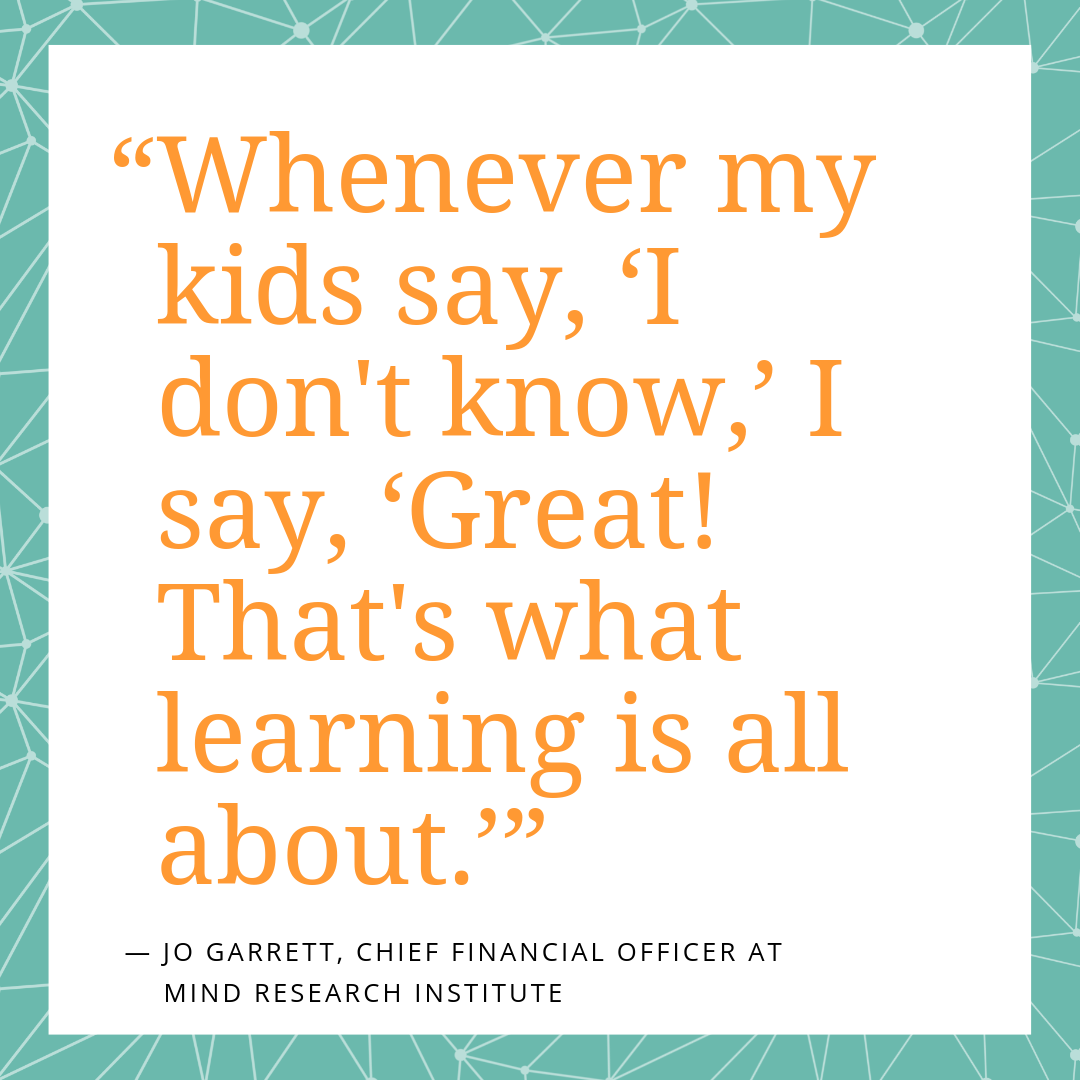
Brian Coffey, Senior Academic Director and a former school Principal, shared a challenge for teachers, staff, administrators, and other ST Math heroes to guide them through this next year.
My challenge to educators returning back to school, whether an administrator, a teacher, or an instructional coach, would be the same challenge I start each year with. The challenge begins with just two questions:
1. What is your best educational memory? Think back to one of your favorite and most impactful educational memories, when you were in school, either elementary, middle, or high school. What was that experience? After you have taken some time to think and recall, from the depths of your childhood memory bank, go share it with someone. Walk across the hall and ask this same question to your teaching team, or if you are an office, call your colleagues into the conference room, and take turns sharing just one memory.
2. If you were to take that memory and put the experience into one word, how would you describe it? What sums it up best? What adjective would you give? Take special attention to note the action or demonstration of the learning that occurred in the word you select.
I’m betting most of your sharing would be incredible descriptions, words that draw us into the “why” of what we do in education. THIS… is what we want our kids to experience, more often than not, in our classrooms, schools, and the culture sought to be built.
Strive to recall these descriptions all year, place them as benchmarks to measure your instructional design and lesson planning. Is that description a part of your central takeaway of the learning goals? Is it a part of your range that measures academic success? Are the experiences we are designing, right now in this moment, going to be memorable for our students 10—20 years from now?
I’m betting they will be.
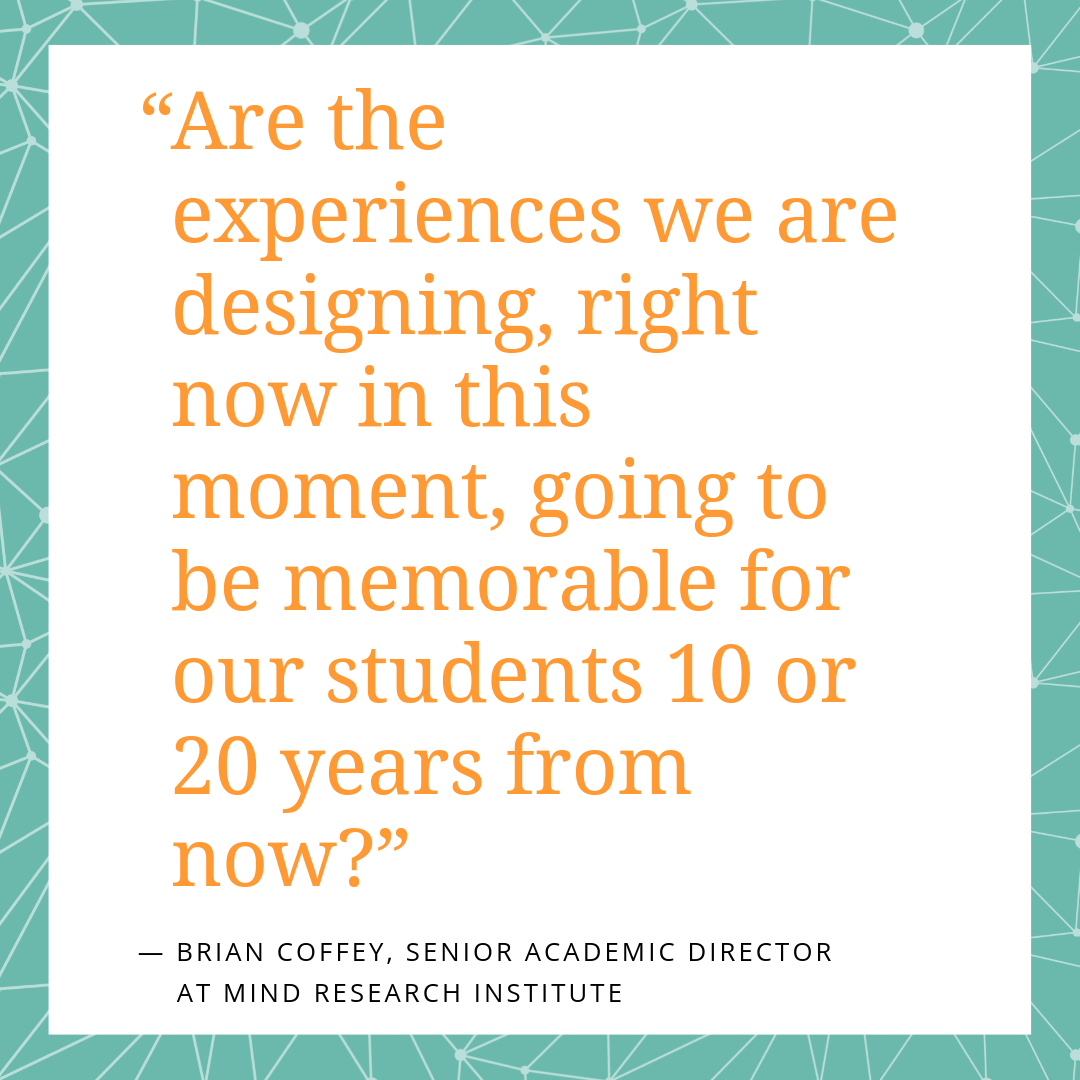
Your family at MIND wishes you a successful, fulfilling, and learning-filled new school year!
Thank you to each administrator, teacher, instructional coach, parent, and student that puts their heart, time, and dedication into making this year back-to-school an amazing learning experience.
We’re rooting for you!
Comment